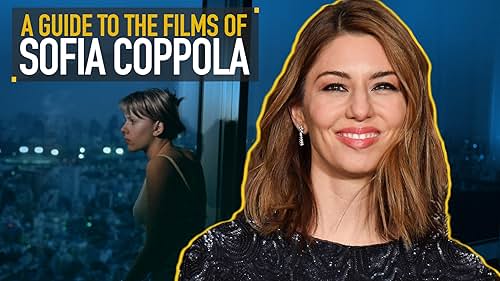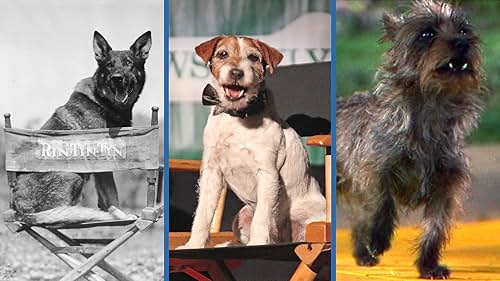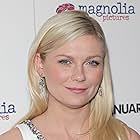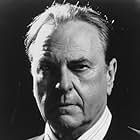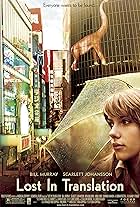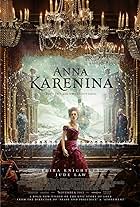The retelling of France's iconic but ill-fated queen, Marie Antoinette. From her betrothal and marriage to Louis XVI at 14 to her reign as queen at 19 and to the end of her reign as queen, a... Read allThe retelling of France's iconic but ill-fated queen, Marie Antoinette. From her betrothal and marriage to Louis XVI at 14 to her reign as queen at 19 and to the end of her reign as queen, and ultimately the fall of Versailles.The retelling of France's iconic but ill-fated queen, Marie Antoinette. From her betrothal and marriage to Louis XVI at 14 to her reign as queen at 19 and to the end of her reign as queen, and ultimately the fall of Versailles.
- Won 1 Oscar
- 19 wins & 24 nominations total
- Austrian Girlfriend #1
- (as Clara Brajman)
- Director
- Writer
- All cast & crew
- Production, box office & more at IMDbPro
Featured reviews
I can only guess that the reason for making this film was to show a teenage Queen of France cavorting with her girlfriends and shopping until she dropped while remaining oblivious to the plight and unhappiness of the French people. In actuality, that's probably pretty close to the truth about this historical figure. Norma Shearer was very good as Marie Antoinette, but she wasn't a kid. I think this version had the right idea. The only thing Coppola omitted was Marie's story, so the movie is instead about the above-mentioned teen partying, shopping, being unfaithful, wandering the grounds, while giving us a look at royal tradition, gorgeous costumes and dazzling scenery. Little else.
Marie Antoinette's life was full of drama - her liaisons with Axel von Fersen, the Affair of the Necklace, her husband's medical problem which prevented the couple from having children for so long, the revolution, the family being taken to prison, and the guillotine. Some of this is touched on or mentioned in passing; most of it is left out. There are five exciting minutes or so toward the end of the film.
In a way, it's a shame, because this film could have given us great insight into Marie Antoinette by having a very young woman play the Queen as these events swirled around her. But in order to do that, characters would have to have been developed, and there didn't seem to be any interest in that. If you love color, beautiful costumes and scenery, this is the film for you. Don't bother if you're looking for any kind of content; like the vacuous queen, there's no there there.
Sofia Coppola delivers a bright, light Marie Antoinette. She's very modern. There is some nice tension as the pressure builds for a baby. The movie fades away after that as France falls into revolution. Dunst is better as the young teen more than the older queen. The movie has the costumes but the drama isn't always there.
If I had known that, I might have enjoyed the movie instead of grinding my popcorn with searing hatred through most of it.
Most noticeably, we're hit with a very non-18th century soundtrack: Adam Ant, Siouxie & the Banshees, The Cure, New Order, Bow Wow Wow, etc. And it's not just atmospheric background music either. There's actually a ballroom scene where they're rockin out to 80s post punk. If you don't realize the purpose of this odd juxtaposition, you might find yourself strangling the person sitting next to you.
Other anachronisms are more subtle but equally bizarre. When Marie Antoinette goes on her shoe shopping spree (to the tune of "I Want Candy", no less) if you look closely you'll see a pair of Converse hi tops in the picture. That's probably when it should sink in that the director is messin with you.
So the point of my review is to warn you NOT to expect any sort of historical accuracy, or even proper historical context. "Marie Antoinette" is more like the story of a 21st century teen growing up in a world of social jealousies, confused politics & cliquish loyalties. Only instead of the highschool hallways it happens in the Palace of Versailles.
That explains why the film "missed the opportunity" of chronicling the French Revolution, the royal flight to Austria, the subsequent trial for treason and other landmark events that you'd think would be covered in a film called "Marie Antoinette". But no, those weren't within the scope of the film.
In the IMDb "goofs" section, people have listed everything from "The real Marie Antoinette didn't wear underwear" to "18th century French forks should have 3 tines, not 4." Ooook. I'm sure those historians hated the movie like I did. But literally as I type this review, I'm hating the film less & less, and I might even try watching it a 2nd time. "Marie Antoinette" is definitely not your typical period piece, though the lavish visuals and big budget might lead you to believe it is. Approach it instead as an experimental indie type film with no rules, and you might really enjoy it.
For me it might be too late, but if you haven't seen this movie you should have fun if you know to expect a modern day story that's ironically set in the late 1700s. It's a good flick, although I question why it won at Cannes (actually, when you see the end credits and realize how much money this production brought to France, maybe there's no question why it won). Definitely do not expect an 18th century European history lesson. For that, stick with the excellent period piece "Amadeus" and the very entertaining 1961 Sophia Loren film set during the French Revolution, "Madame".
The visuals and auditory elements, which evoke a powerful image of 18th-century Versailles, are the movie's forte. And their effects linger in one's mind (or at least they did in mine) long after one's exit from the theater. As a budding art historian, I was stunned by the intensely lush visual spectacle the film has to offer: the pomp and circumstance of ritualized and regimented 18th-century Versailles. The semi-private world that Antoinette builds for herself to escape Versailles's codified, quasi-totalitarian atmosphere, is evoked through a sequence of fast-moving images of champagne-guzzling, beautifully-decorated cake-eating, and Manolo Blahnik shoe buying. Thus Antoinette's fantasy world is likened to a world recognizable to you, me and Carrie Bradshaw. Some people may scoff at this 21st century world transposed to an earlier time. But as the center of the world in 18th-century Europe, Marie-Antoinette's "secret Versailles" would certainly have been as "hip" as this, and Coppola has found effective means through sound and image by which to make this hipness accessible.
The story zooms in on the character of Marie-Antoinette, played by a ravishing Kirsten Dunst, who arrives at Versailles at the tender age of 14, to become queen of France a mere 5 years later. Coppola emphasizes the loneliness of Antoinette throughout the film: most important is her alienation from the French court by the fact that she is a foreigner (something that made her a scapegoat for all of France's problems during the 1780's). Her powerlessness to "fit in" is emphasized also through her sexual alienation from her socially-awkward husband (played by Jason Schwartzmann), her mother's chidings that she has not yet produced an heir to the French throne (and thereby has not secured Austria's political place in Europe), and the bitchy gossip that goes on behind her back at court.
Marie-Antoinette is depicted as an intensely personable, friendly and playful person. Coppola fashions a Marie-Antoinette who is a dutiful daughter, a patient wife to Louis (who eventually overcomes his shyness and becomes a loving and protective husband and father), and a caring and tender mother. She is shown as both bold and humble, two qualities which had quasi-miraculous effects on both the court and the angry mob, as is shown in some of the film's most touching moments.
Equipped with these "essential" personal qualities, the charges traditionally made against Marie-Antoinette fade completely. It is precisely Antoinette's ill-fated attempt at fitting into French court society that causes her escape into a world of idle futility and libertinage. Her escape into the world of "playing shepherdess" in her pleasure-house of Le Hameau is shown not as a silly escape from responsibility but as the simple human need to be surrounded by the natural world. This place appears to us as it does to Antoinette: as a refuge from the backbiting, totalitarian regime of Versailles. Even the legendary "let them eat cake" statement allegedly made by Marie-Antoinette is discarded as fiction.
There is almost no place in the film for the 18th-century reality as it existed outside the bubble-like world of Versailles. This is not the movie's purpose. The end of the film is a bit abrupt: the last image shows the royal family heading to Paris to be imprisoned in the building of the Conciergerie. There is no mention of the guillotine anywhere, which again can seem surprising, but which shows that Coppola deliberately tried to eschew stereotypes and do something different. And it is all to her credit.
To top it off, the soundtrack...well, let me first put it this way, as a stand alone compilation, it's terrific to listen to but the way the modern tunes and songs have been incorporated in the sequences looks ill fit. It looks like a the characters have gone to a current day costume party rather than a movie of the period. Moreover, Coppola fails to draw the body language and nuances of the French culture from her actors. Not once does one get the impression that this is a story about France. As a result of bad direction and terrible writing, the performances of the actors suffer even though Kirsten Dunst does the best she could with the given material.
The director portrays Antoinette as naive and frivolous. There is no mention of her historical accomplishments or failures. Now it isn't an easy task to convincingly tell the story of a historical figure in two hours but Coppola focuses the entire two hours on Antoinette being fascinated by her riches and partying around. A competent director and writer could have done so much more with the storytelling. In the current case, only near the very end things start to move along but here too the story speeds up at such a superfast pace that the ending is extremely abrupt and contrived.
'Marie Antoinette' is like a bad birthday present that is wrapped beautifully but once unwrapped, the gift itself is far from satisfactory.
Did you know
- TriviaThe French government granted special permission for the crew to film in the Palace of Versailles.
- GoofsWhen Marie Antoinette is first presented to the French royal family, Aunt Victoire is holding a pekingese. This breed was unknown in Europe until a hundred years later when British forces successfully invaded China in the Second Opium War and five pekingese belonging to the Chinese Emperor's aunt, who had committed suicide as the British troops advanced on the Forbidden City while the rest of the Imperial family fled, were brought back to Britain, where one was presented to Queen Victoria, who named it Looty.
- Quotes
Marie-Antoinette: [to her first-born, a daughter] Oh, you were not what was desired, but that makes you no less dear to me. A boy would have been the Son of France, but you, Marie Thérèse, shall be mine.
- SoundtracksNatural's Not In It
Written by Dave Allen, Hugo Burnham, Andy Gill (as Andrew Gill) & Jon King
Performed by Gang of Four
Courtesy of Warner Bros. Records Inc.
By arrangement with Warner Music Group Film & TV Licensing
and Courtesy of EMI Records Ltd.
Details
- Release date
- Countries of origin
- Languages
- Also known as
- María Antonieta, la reina adolescente
- Filming locations
- Production companies
- See more company credits at IMDbPro
Box office
- Budget
- $40,000,000 (estimated)
- Gross US & Canada
- $15,962,471
- Opening weekend US & Canada
- $5,361,050
- Oct 22, 2006
- Gross worldwide
- $60,917,189
- Runtime2 hours 3 minutes
- Color
- Sound mix
Contribute to this page






